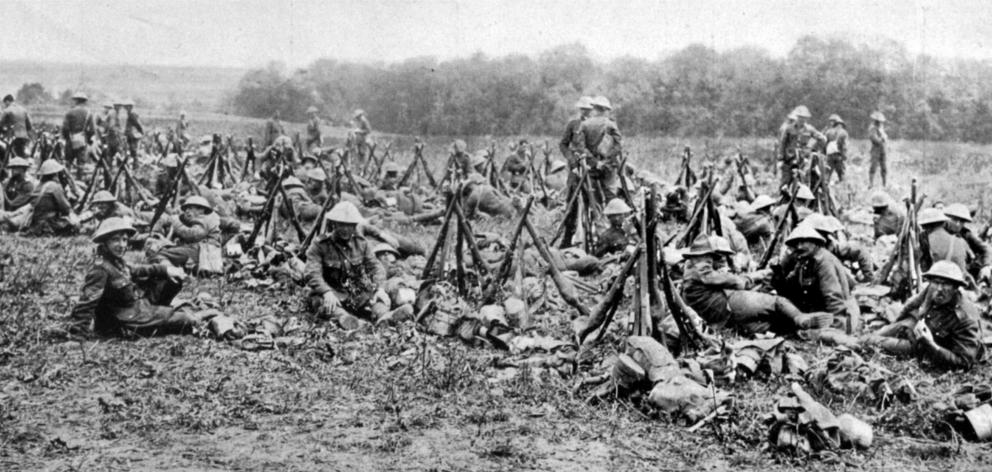
The correspondent points out that nothing but the complete surrender of the Central Powers will be considered by the Allies. When Bulgaria wanted an armistice the allies accepted the proposal on terms which amounted to Bulgaria’s unconditional surrender. This established a precedent for the method of dealing with other peace moves. If Germany and Austria are willing to surrender on the Allies’ terms, it is possible that the war may be brought to an early close. While high officials would not venture an opinion in the absence of the test of Prince Maximilian’s speech, it was made clear that if the Central Powers want peace before their territory is invaded and laid waste they must unconditionally surrender.
Temporary lull
There is a temporary lull in the battle in our sector, and the New Zealanders are hanging on to the salient they have bitten into the enemy front across the Scheldt Canal. British troops are across the canal on our left, and we join up with them today. A new German division is announced on our flank, and prisoners reported that there was to have been an attack with tanks, but nothing came of it. There is apparently no immediate intention of a voluntary withdrawal on this sector, and the enemy may still offer a stubborn resistance here. There are many indications of declining German morale, and that her armies are in a bad way, and are slowly crumbling. There have been riots, in which officers joined with the men, in Cambrai. In the prison cages one notices the marked ill-feeling between Prussians and Bavarians. The other day, in Cambrai, so it is reported, the Prussians and Bavarians quarrelled over their loot, and came to blows. Fifteen Prussians were killed, and one officer was thrown from a third floor and had his neck broken.
Classes for returning soldiers
AUCKLAND: October 7. The returned men who landed yesterday benefited considerably by the voyage, and there are no cot cases. During the voyage an experiment was made in the direction of providing classes of instruction for soldiers. Two-hour lessons were given daily on four educational and 12 vocational subjects. Of the latter, by far the greater number of men chose farming as the subject they intend to study; and the instruction given by Captain Vercoe, D.S.O., D.C.M., assisted by Captain R. Irvine, Sergeant T. G. Batt, and Private F. D. Wood attracted large classes. For educational subjects the men were divided into four groups, and five consecutive lectures on commerce, economics, English history, and other general knowledge were given to each. In the case of the smaller classes — for French, English, mathematics, technics, shorthand, bookkeeping, chemistry, and architecture — very good progress was made.On the whole, the experiment was considered a success. It is the intention of the authorities to hold similar classes on all New Zealand-bound transports. All the hotels in the city and within a radius of 15 miles of the post office were closed to-day by the instructions of the Minister of Defence. — ODT, 8.10.1918.
• COPIES OF PICTURE AVAILABLE FROM ODT OR WWW.OTAGOIMAGES.CO.NZ












